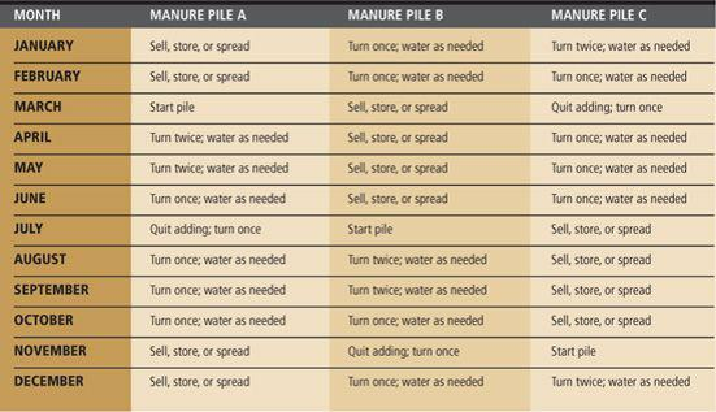Agriculture Reference
In-Depth Information
Microorganisms essential for composting thrive at temperatures of 100°F to 150°F. At
130°F and higher, most bacteria, viruses, fungi, protozoa, weed seeds, and fly larvae are
destroyed.
To kill most parasite eggs, the heat of the manure pile should be maintained at 145°F for
at least 2 weeks or at lower temperatures for longer periods of time. The only way you will
know if a manure pile is at the proper temperature is to test it with a compost thermometer.
If the pile is too cool, it may be too dry. If a pure manure pile is too hot, you can moderate
its heat so the composting cycle lasts longer by adding leaves or bedding.
Compost pile calendar
The final phase of composting is a curing stage of about a month wherein the microor-
ganisms finish degrading the more complex organic compounds and useful soil-nitrify-
ing bacteria repopulate the compost. As the bacteria die and decompose, they release their
stored nitrogen. As the fiber breaks down, carbon dioxide and water are released, decreas-
ing the bulk of the manure by up to half.
The end product of composting is humus, the dark, uniform, finely textured, odorless
product of the decomposition of organic matter that is so valuable as a soil conditioner and
additive.

